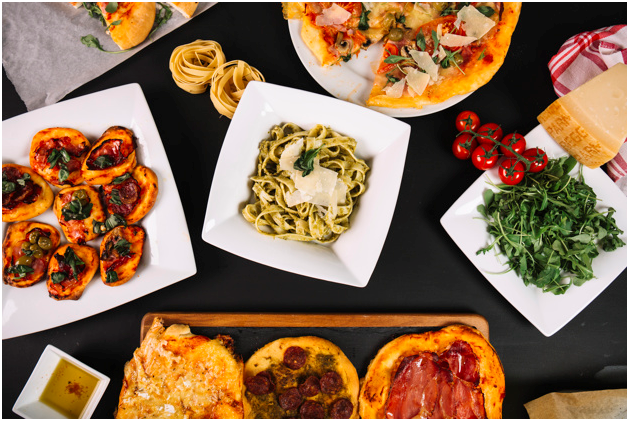Share

DON’T LET SPOILED FOOD SPOIL YOUR FUN
By Victoria Healthcare 12 April 2019

Patient education: Food poisoning
What is food poisoning?
-- Food poisoning is the overgrowth of bacteria or viruses in food that then attack your body when you eat the food. This hot weather is perfect for breeding bacteria in your food.
This illness can cause nausea, vomiting, or diarrhea. Food poisoning is caused by eating food that contains germs, such as bacteria, viruses, or parasites. One of the most common causes of food poisoning is norovirus. Two examples of bacteria that are common causes of food poisoning are Salmonella and E. coli. Parasites include tiny worms that people can ingest in some countries.
How can germs get in food?
— Germs can get in food in different ways:
●People who are sick can spread their germs to the food they cook if they do not wash their hands before they touch the food.
●Germs can live in or on food. If food is not washed or cooked enough, the germs in it or on it can infect people.
●Germs from one food can get on another food. This can happen when a person uses the same cutting board or knife to prepare different foods.
What are the symptoms of food poisoning?
— Symptoms can occur right after a person eats the food, or not until days or weeks later. Common symptoms of food poisoning include:
●Nausea or vomiting
●Belly pain
●Diarrhea that can be watery or bloody
●Fever
Other symptoms can include problems with the nervous system, such as blurry vision or feeling dizzy. But these problems are not as common.
Is there anything I can do on my own to feel better?
— Yes. You can:
●Drink enough liquids so that your body does not get dehydrated. Dehydration is when the body loses too much water.
●Eat small meals that do not have a lot of fat in them
●Rest, if you feel tired
Should I see a doctor or nurse?
— See your doctor or nurse if you:
●Have severe belly pain
●Cannot eat or drink
●Vomit blood or have blood in your bowel movements
●Have a fever higher than 100.4°F (38°C)
Young children and older adults with symptoms should make sure to see their doctor or nurse earlier rather than later. That's because these groups can get dehydrated more easily.
Do I need to have tests?
— Many people do not need to have tests. But it's possible that your doctor will do tests to check if you are dehydrated or to figure out which germ caused your food poisoning. Your doctor might do:
●Blood tests
●Urine tests
●Tests on a sample of your bowel movement
How is food poisoning treated?
— Many people do not need any treatment, because their symptoms will get better on their own. But some people need:
●Antibiotics – These medicines treat bacterial infections.
●Fluids through an "IV" – An IV is a thin tube that goes into your vein. People with a lot of diarrhea or vomiting might need IV fluids to treat or prevent dehydration.
In general, your body uses diarrhea to wash out the germs, so staying hydrated is actually the best way to treat diarrhea that is uncomplicated. You can try anti-diarrhea medicines as long as you do not have a fever or blood in your bowel movements. Do not take more than the label tells you to. Children should not take anti-diarrhea medicines.
Can food poisoning be prevented?
— Below are good, general tips. In this hot weather, it is important to keep food refrigerated and not leave it out too long before or after a meal. This is especially true of sauces and liquidy foods, such as soups.
You can reduce your chance of getting food poisoning or spreading germs that can cause food poisoning by:
●Washing your hands after changing diapers, going to the bathroom, blowing your nose, touching animals, or taking out the trash
●Staying home from work or school until you feel better (if you are sick)
●Paying attention to food safety. Tips include:
•Not drinking unpasteurized milk or foods made with it
•Washing fruits and vegetables well before eating them
•Keeping the refrigerator colder than 40°F (4.4°C) and the freezer below 0°F (-18°C)
•Cooking meat and seafood until well done
•Cooking eggs until the yolk is firm
•Washing hands, knives, and cutting boards after they touch raw food
For more food safety tips to prevent food poisoning, see the table (table 1).
Pregnant women and people whose bodies have trouble fighting off infections can do more things to prevent getting food poisoning. If you are pregnant or have trouble fighting off infections, talk to your doctor or nurse about other ways to prevent getting food poisoning.
Source: UpToDate


